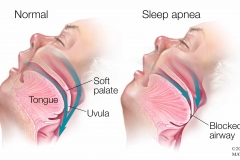“fancy medical diagnoses #2”
And they just keep coming….
Borborygmus \ ˌbȯr-bə-ˈrig-məs \ (did you get that the first time?)
I first learned about this diagnoses when a patient presented to clinic with a complaint that his stomach was rumbling at random times during the day. Well, if there’s anything I’ve learned about the medical world, it’s that something as simple as “you’re hungry so eat” was probably not going to be the diagnosis. Of course the patient then went on to say that the growling was present regardless of whether or not he had eaten (go figure, right?). Later on in the visit the provider was better able to identify the cause by listening to bowel sounds during an abdominal physical exam. It must have had a distinct sound because it wasn’t long until the diagnosis of “borborygmus” came. As a scribe I’m not allowed to participate in any type of patient care but I wish I could have heard what it sounded like.
It was later explained to me by the provider that this was a term used to describe noise from the abdomen that is caused by gas moving through the intestines.1 The gas is produced by certain strains of bacteria in the intestines.2 As it’s propelled through the intestines, it’s mixed with food and fluids and it’s this movement that produces the sound known as borborygmus.3
Hirsutism \ ˈhər-sə-ˌti-zəm \
You’ll actually be surprised at how common this diagnosis can be. I can’t particularly remember the first time I heard it, but I’ve seen ample patient’s since then that come in complaining of this. The condition itself is characterized by unwanted, male-pattern hair growth in women on areas like the face, chest and back. It can be caused by excess male hormones called androgens, which can be produced during puberty or by other medical conditions that cause hormone imbalances.4 Of course, this condition makes certain women feel uncomfortable. There are several ways patient’s I’ve encountered look to treat their condition, including oral contraceptives and electrolysis. However, most seem to opt for self-care methods like waxes to manage their condition.
“sleep apnea”
During my undergrad years, I had worked in a group home where I encountered clients with this condition but I never understood it – I had just learned to properly clean and set up the required continuous positive airway pressure (CPAP) machine that those with this condition needed to sleep peacefully.
In clinic, most patients are diagnosed with ‘obstructive sleep apnea’ (OSA) which I’ve come to realize happens to be the most common form of sleep apnea. OSA occurs when throat muscles intermittently relax while sleeping, leading to decreased airflow as the airway becomes narrowed/blocked. A common symptom of this condition is snoring, which occurs as the airway is narrowed.5 Many patients who mention snoring as one of their symptoms also complain of increased drowsiness during the day.
I got so used to hearing these as common symptoms of OSA that it came as a surprise to me when I heard that untreated/uncontrolled hypertension was also a symptom of this condition. With further review of the literature I’ve learned that hypertension can be caused by OSA. It’s been found that during OSA episodes, there can be elevations in systolic and diastolic BP levels that sometimes remain elevated during the day even when breathing is normal.6 Instead of using medications as mentioned in the previous blog, these cases of secondary hypertension can sometimes be controlled with the CPAP machine.
“cyclic vomiting syndrome (CVS)”
“Do you continue to use marijuana?” “How often?”
Prior to learning about this syndrome, I always wondered why most providers asked patients these two questions before determining their symptoms were consistent with this diagnosis. Surprisingly most of the patients who answered “yes” to the first question seemed to know what this diagnosis was. After some time I decided to ask one of the providers why a patient’s marijuana use may contribute to their excessive vomiting, and learned that chronic marijuana use in patients was more likely to cause these vomiting episodes that could last for hours or days at a time.
I did, however, come to learn that CVS does NOT only occur with chronic marijuana use. Previously, this diagnosis was commonly seen in children who have migraines or a family history of migraine headaches. I learned through research that it could also be caused by anxiety or panic attacks.8 It was interesting, though, to reflect on the fact that every patient I encountered had symptoms that would worsen with marijuana use but improve once they discontinued using it. Which caused me to believe that that was the most common cause of CVS, only to find out children are commonly known to have this syndrome for completely different reasons. I guess there’s much to be said there about how our understanding of topics can often be shaped by our experiences.
Sources
1. Medical Definition of Borborygmus. Retrieved from https://www.medicinenet.com/script/main/art.asp?articlekey=6689
2. Gas and gas pains. Retrieved from https://www.mayoclinic.org/diseases-conditions/gas-and-gas-pains/symptoms-causes/syc-20372709
3. Why does your stomach growl when you are hungry? Retrieved from https://www.scientificamerican.com/article/why-does-your-stomach-gro/
4. Hirsutism. (2018). Retrieved from https://www.mayoclinic.org/diseases-conditions/hirsutism/symptoms-causes/syc-20354935
5. Obstructive sleep apnea. (2018). Retrieved from https://www.mayoclinic.org/diseases-conditions/obstructive-sleep-apnea/symptoms-causes/syc-20352090
6. Dopp, J. M., Reichmuth, K. J., & Morgan, B. J. (2007, December). Obstructive sleep apnea and hypertension: Mechanisms, evaluation, and management. Retrieved from https://www.ncbi.nlm.nih.gov/pubmed/18367017
7. Image
8. Cyclic vomiting syndrome. (2017, August 08). Retrieved from https://www.mayoclinic.org/diseases-conditions/cyclic-vomiting-syndrome/symptoms-causes/syc-20352161

